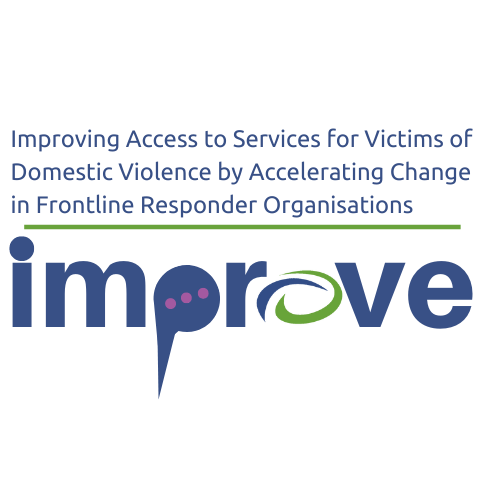29 July 2024
20th Anniversary of the Organic Act on Integrated Protection Measures against Gender Violence
On December 28th 2004, Spain’s government passed the Organic Act 1/2004 on Integrated Protection Measures against Gender Violence. This year marks the 20th anniversary of the beginning of an act, pioneering in the fight against gender-based violence, which provides comprehensive preventive and legal measures, protection, and care to victims of violence against women and domestic violence. The adoption of this legal framework shed light on the phenomenon of violence towards women perpetrated by men (current or former partners) regardless of cohabitation status, introducing the term “gender-based violence” to the Spanish law and describing it as “the most brutal manifestation of inequality”.
The recently first-ever approved Directive of the European Parliament and of the Council of 14 May 2024 on combating violence against women and domestic violence highlights that “violence against women and domestic violence is a violation of fundamental rights” and establishes that Member States should adopt and implement effective, comprehensive and coordinated policies encompassing all relevant measures to prevent and combat all forms of violence against women and domestic violence.
The Directive represents a crucial step forward to protect the core values and rights of equality between women and men and non-discrimination and deems it necessary to provide harmonized definitions of offences in the context of intimate partner relationships, especially those that affect women, such as female genital mutilation, forced marriage, and cybercrime. Furthermore, the Directive makes it clear that there is a need for a strong response from the judicial authorities to sanction all forms of violence against women.
Evaluating Spain’s Organic Act 1/2004
The Organic Act 1/2004 states that the Government shall prepare a report evaluating its effectiveness in combating violence against women three years after its entry to force. The data published in the National observatory reports on violence against women shows the progress made during the last two decades.
Firstly, the reports of gender-based violence have increased significantly since the Act was passed. In particular, there has been an upward trend in reported cases since 2010 (excluding 2020), as highlighted by the General Council of the Judiciary in its Annual Report on Gender-Based Violence of 2023.
Similarly, the conviction rate for gender-based violence has also risen during the last few years. The reason behind this increase lies in the criminalization of new forms of violence such as sexual harassment or psychological violence. In 2023, the percentage of convictions in courts for violence against women increased by more than five points in comparison to 2022 and reached up to 91% of the total number of trials completed.
The assistance to victims has improved thanks to the creation of an extensive network of specialized resources for victims, such as shelters for women and psychological and social assistance services. In addition, victims of gender-based violence also have access to more effective legal protection measures, such as restraining orders against perpetrators, protection orders, and custody of children.
The work on prevention and awareness-raising has been remarkable as well. Many campaigns and educational programs that aim to foster gender equality and prevent gender-based violence have been developed. For instance, “#ZeroSixteen: Sexual abuse is not a film”, an awareness campaign carried out by the Ministry of Equality.
Despite all the progress made, there is still a long way to achieve the end of violence against women in Spain.
What are the main challenges ahead of us?
The number of women murdered by their current or former partners is still unacceptably high. It is crucial to redouble the efforts in order to prevent those crimes from happening and to ensure justice is served for victims. Moreover, there should be transparency on the morbidity statistics and the resulting increased workload in Primary Care and in Hospital Care.
The Annual Report by the Ministry of Health reflects the urgency to strengthen human resources within the healthcare system. On the other hand, working with the Common Standardized Instrument for the Early Detection of Gender-Based Violence in the National Health System will give the different Autonomous Communities of Spain access to data to address the issue accordingly.
The introduction of the security measure of protection orders through the Organic Act 1/2004, the later Reform of the Spanish Criminal Code in 2015 which included and defined a classification of crimes related to gender-based violence and domestic violence, and the recent Organic Act 10/2022, on the Comprehensive Guarantee of Sexual Freedom are our main tools to protect the victims even if they do not report.
However, we require more measures to guarantee the enforcement of orders: optimal interinstitutional cooperation, specific training for professionals, implementation of technological measures for follow-ups, and severe sanctions when a protective order is breached.
The matter of assistance to vulnerable victims who face barriers when accessing to specialized resources cannot be overlooked either; there should be equal access to justice for everyone. The Directive states: “Member States shall ensure that victims can report acts of violence against women or domestic violence to the competent authorities through accessible, easy-to-use, safe and readily available channels”.
In Spain, when victims report to the National Police’s Central Unit for Women and Family Affairs, the Civil Guard’s Women-Minor Team and the Regional Police units for reporting cases of gender-based violence they are assisted by a specialized police officer.
When it comes to the use of technologies, the Subdirectorate-General for Information and Communications Systems for Security (SGSICS) created AlertCops, a free mobile app that allows users to communicate to the State Security Forces and Corps. However, it requires reporting the incident in a police station afterwards.
Strengthening protection measures for children affected by gender-based violence and ensuring their access to specialized assistance is another challenge we cannot leave out. Training for judicial authorities shall be ensured and not lose sight of the children’s well-being, signs of negligence, mental health matters, and housing rights to properly address child custody and visitation proceedings.
Statistics published by the Government Delegation against Gender-based Violence show that from 2013 until the 4th of April 2024, a total of 57 minors have been murdered by their fathers or their mother’s partners in Spain. This type of crime is known as “vicarious violence”.
Even though the Organic Act 1/2004 included the matter of offences against sexual liberty, the fight against sexual abuse met a turning point with the above mentioned Organic Act 10/2022, on the Comprehensive Guarantee of Sexual Freedom, which introduced the concept of “explicit consent”. The Act states: “Consent can only be considered consent when it has been freely manifested through actions that, under the circumstances, clearly express the person’s wishes.”
Despite the access to assistance and care services for sexual abuse victims, we are witnessing a rise in cases. We should evaluate the multiple reasons behind this statistic: gender stereotypes, rape culture that minimizes the severity of sexual abuse, the lack of sexual education, access to pornography...
As for preventive measures, promoting research on the root causes of violence against women and domestic violence and examining the implementation of intervention programs for perpetrators to ensure their effectiveness would reduce recidivism.
Lastly, we cannot ignore the role of the media and the importance of ensuring specific gender-sensitive training for professionals. Clear examples of the importance of the media and how it can serve as a trigger for reporting are the case of Ana Orantes in 1997, who appeared on TV and recounted the abuse she had endured at the hands of her abusive husband, and the recently released documentary film You Are Not Alone: Fighting the Wolf Pack about the story of the sexual assault case by five men in 2016 in Pamplona.
Conclusion
In Spain, the Organic Act 1/2004 has been an essential tool to protect victims of violence against women. Nevertheless, looking at the statistics provided by official bodies, it is paramount to keep working to eradicate this kind of violence to build a fairer and more equal society. Fostering gender equality in every aspect of life through the implementation of public policies should not lose sight of the fight against gender stereotypes and the importance of teaching children the core values of equality and mutual respect.
The adoption of the Directive and the reevaluation of the 20 years of our experience allow us to identify the pending challenges in Spain and design new, more effective, strategies for the rest of Europe from a common ground among all Member States of the European Union. In that sense, IMPROVE appears as a great example of how we can build spaces for information exchange to achieve the common goal of eradicating gender-based and domestic violence.
Sources
Campaña #CeroDieciséis: La violencia sexual no es una película - Delegación del Gobierno contra la Violencia de Género
https://violenciagenero.igualdad.gob.es/sensibilizacionConcienciacion/campannas/violenciaGobierno/CeroDieciseis/vgenero.htmCarmona, V. (2016) Guía práctica de la Ley Orgánica 1/2004, de 28 de diciembre, de Medidas de Protección Integral contra la Violencia de Género, editada por Consejo General del Poder Judicial. https://www.poderjudicial.es/cgpj/es/Temas/Violencia-domestica-y-de-genero/Actividad-del-Observatorio/Guias-practicas/Guia-practica-de-la-Ley-Organica-1-2004--de-28-de-diciembre--de-Medidas-de-Proteccion-Integral-contra-la-Violencia-de-Genero--2016-
Directive (EU) 2024/1385 of the European Parliament and of the Council of 14 May 2024 on combating violence against women and domestic violence https://eur-lex.europa.eu/legal-content/EN/TXT/?uri=OJ%3AL_202401385
Informes Anuales del Observatorio Estatal de Violencia sobre la Mujer. https://violenciagenero.igualdad.gob.es/violenciaEnCifras/observatorio/informesAnuales/home.htm
Informe Anual de Violencia de Género 2022, Ministerio de Igualdad. https://violenciagenero.igualdad.gob.es/violenciaEnCifras/boletines/boletinAnual/home.htm
Organic Act 1/2004 of 28 December on Integrated Protection Measures against Gender Violence https://www.coe.int/t/dg2/equality/domesticviolencecampaign/countryinformationpages/spain/LeyViolenciadeGeneroingles_en.pdf
Violencia sobre la mujer Informe Anual de 2023 https://www.poderjudicial.es/cgpj/es/Poder-Judicial/En-Portada/Las-194-658-victimas-de-la-violencia-de-genero-de-2023--533-mujeres-cada-dia--suponen-un-aumento-del-diez-por-ciento-con-respecto-al-ano-anterior-
About the authors
Mireia Gramuntell has been a police officer since 2015. She studied Psychology at the University of Valencia and specialized in Criminology and Victimology at the University of Elche (Alicante). She started her professional career as a psychologist at an intervention program for gender-based violence perpetrators who had to attend as part of their sentence.
In 2015, the work carried out by the Sexual and Domestic Violence Division (GAMA) of the Valencia Local Police drew her attention, so she decided to fight against domestic violence from another perspective, as a police officer.
Nowadays, she is focused on improving police interventions in gender-based and domestic violence situations, and she is in charge of the follow-up of protection orders for gender-based violence, domestic violence, and sexual abuse victims of the city of Valencia.
Her role in IMPROVE is to provide an insight into the work carried out during police interventions, as well as to share her knowledge from the victimology field. She works alongside the Innovation & Project Management Division of the Valencia Local Police contributing to the tasks within each work package.


